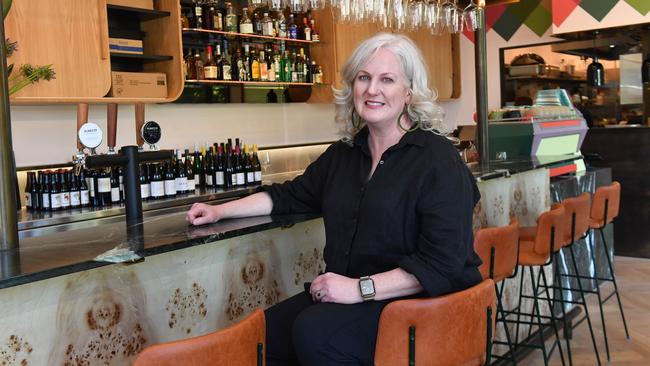Hospitality wages up to $60 per hour on public holidays leaving industry at ‘rock bottom’
Two award wage increases, that now see junior staff getting paid up to $60 per hour on public holidays, is bringing the state’s hospitality industry to rock bottom.

Lifestyle
Don't miss out on the headlines from Lifestyle. Followed categories will be added to My News.
South Australia’s hospitality industry is at “rock bottom” and the Covid-19 pandemic was a “dream” compared to the current economical landscape, restaurateurs say.
In light of two hospitality award wage increases in less than 12 months and what is being described as a recession, industry figures are begging for government help and public understanding.
Josh Rivers, whose businesses include CREAM cafe in Brighton and Remy’s Deep Dish Pizza & Bar in Adelaide, said he was now paying “executive level money” of $60.20 per hour for casual workers aged from 20 years on public holidays “trying to sell scrambled eggs and coffee”.
“For 10 staff, that’s $600 per hour,” he said.
Mr Rivers is among those reporting a downturn in trade as a result of current cost of living pressures.
“We’re in a full-blown recession,” Mr Rivers said. “It’s the worst downturn I’ve seen in the nine years of being in business, and that’s including Covid times.
“Covid was a dream compared to what we have now. People still came out, whereas right now people are terrified to spend money.”
Mr Rivers estimates that since the start of the pandemic, operational costs including overheads, produce and wages have escalated by around $20,000 across his three businesses.
“It’s not something that can be countered by raising the price of coffees by 10c,” he said.
“Prices need to go up through the roof. A cup of coffee, realistically, should be $8-$9 for a small.”
Mr Rivers’ comments follow startling observations made in the recently released Restaurant & Catering Association’s 2022 Benchmarking Report, in which almost half of respondents reported a decrease in net profit in the past three years, while 45 per cent of business owners reported regularly underpaying themselves. Eight in 10 respondents predicted menu prices to increase in the coming 12 months.

Hospitality stalwart Emily Raven likened the current landscape to the “mini recession we went through at the turn of the millennium”.
“People tighten their belts and don’t go out,” said Ms Raven, who runs My Kingdom for a Horse and A Prayer for the Wild at Heart.
“Closures are happening more than we realise.”
A lack of understanding around menu pricing is part of the problem, they say.
“If you’ve got a meal that costs $22, $2 goes to the government for GST, after that there’s $10 on wages including super, then you’ve got food costs which you would want to keep under $5, then you’ve got to cover the overheads – power, public liability insurance, rent – and if there’s anything leftover, 1-2 per cent, that’s your net profit,” Ms Raven said.
“I try to stay upbeat. I think it will get better. We’re at rock bottom at the moment.”
The most recent award wage increase of 5.75 per cent from July 1 compounds the 4.6-5.2 per cent increase that came into effect in October 2022.
Business owners have also been faced with paying more through the legislated increase to superannuation.
Restaurant and Catering CEO Suresh Mackinam agreed “times are challenging” but that restaurateurs were a “resilient mob”.
He said staffing was an ongoing problem. The association has written to the government to relax laws introduced this month that caps the number of hours student visa holders can work to 48 hours a fortnight.
“If you’ve got people screaming to work and people screaming for labour, what you don’t want to happen is a black market economy,” Mr Mackinam said.
Mr Rivers called for the government to formally acknowledge and assist small businesses, including those in hospitality.
“The budget needs to have a sector to help out small business,” he said.
“Hospitality is the third largest sector (for employment) on earth. If we can’t keep up, what’s going to happen?”





